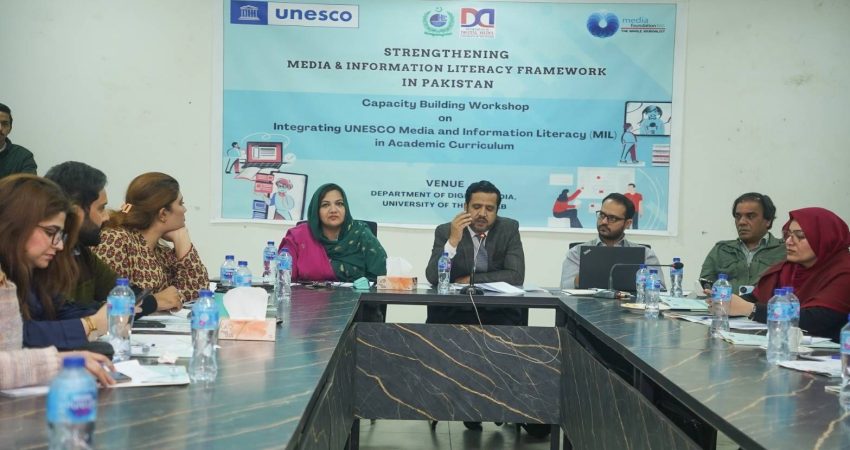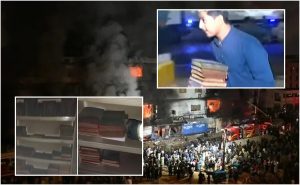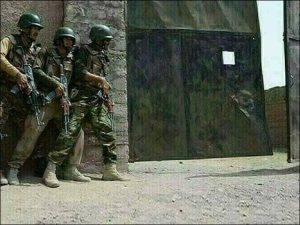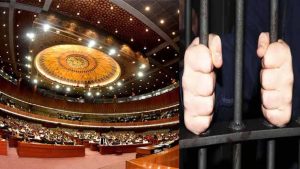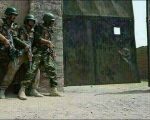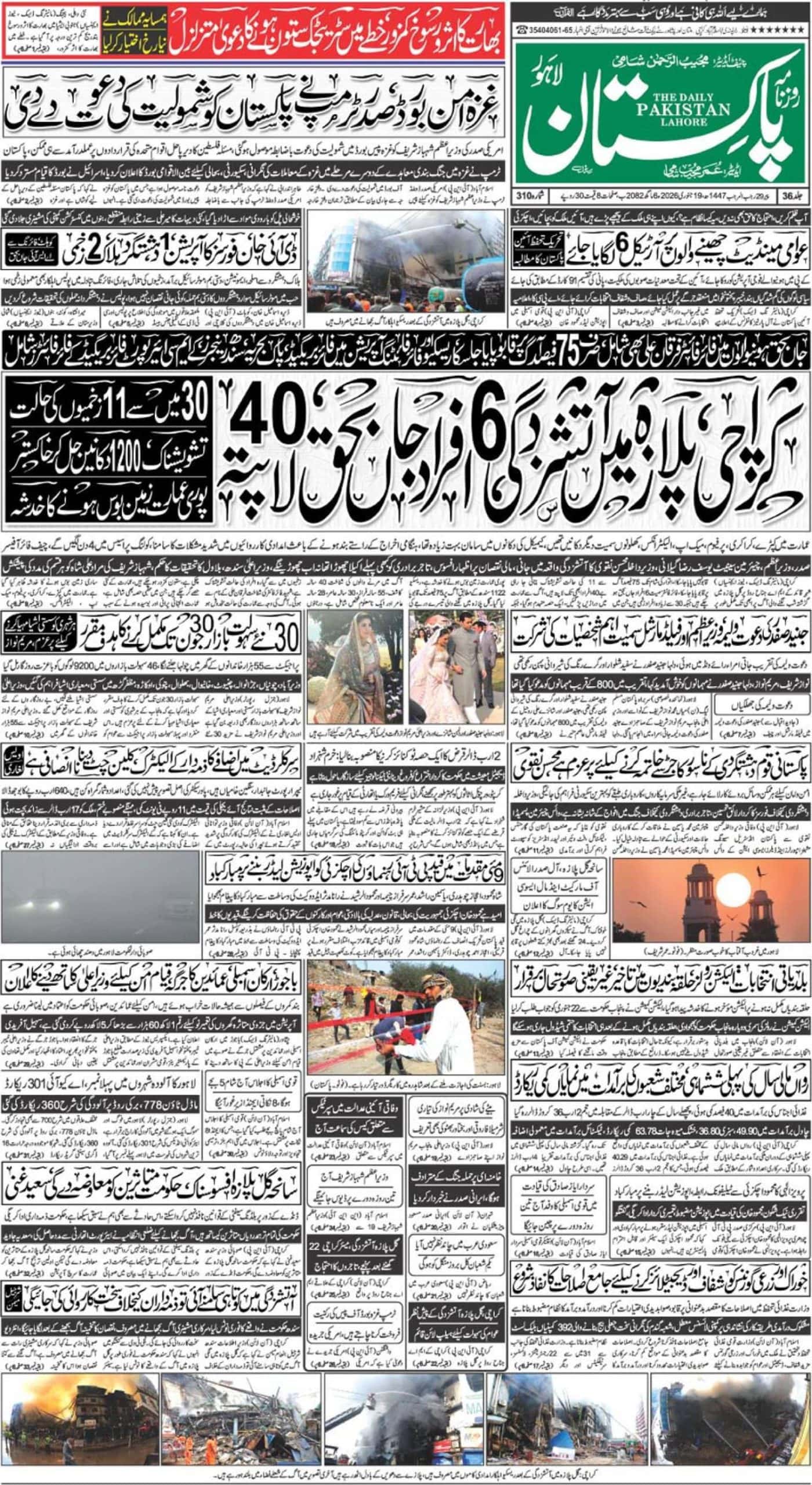LAHORE – UNESCO, in collaboration with the Higher Education Commission (HEC) of Pakistan successfully organized a Capacity-Building Workshop for Academics on designing a Media and Information Literacy (MIL) course for BS Media and Communication Studies facilititaed by Department of Digital Media, University of the Punjab and coordintaed by Media Foundation 360.
Hamza Swati, National Program Communication Officer at UNESCO, briefed participants on the significance of integrating MIL into the curriculum to equip students with essential skills to navigate today’s complex media landscape. The workshop featured insights from distinguished resource persons, including Hadyat Ullah Kasi, Deputy Director (Academics) HEC; Dr. Mehwish Raza, /Deputy Head Centre for Learning & Teaching, Forman Christian College University. Prof. Dr. Savera Shami, Chairperson of the Department of Digital Media who is also a working as Research Lead for UNESCO’s Media and Information Literacy Framework Project in Pakistan and was the co-convener of the HEC National Curriculum Review Committee (NCRC) for Media and Communication Studies, shared valuable research findings and in-depth analysis from the draft strategy. This workshop served as a key part of a series of consultative sessions aimed at gathering recommendations from critical stakeholders, contributing to the shaping of a comprehensive and impactful Media and Information Literacy framework.
In today’s digital age, the rapid spread of misinformation and disinformation poses a significant challenge, impacting individuals, communities, and societies at large. Recognizing the essential role of Media and Information Literacy (MIL) in promoting informed citizenship and critical thinking, the Higher Education Commission (HEC) of Pakistan has taken a progressive step by mandating MIL as a compulsory 3-credit-hour course in the BS Media and Communication Studies curriculum, developed through its NCRC. This forward-thinking initiative highlights the urgency of equipping students with the necessary skills and tools to navigate an increasingly complex digital landscape and engage responsibly in democratic discourse. To support this, UNESCO took a proactive step by organizing a capacity-building workshop, aimed at creating a collaborative environment where academics could exchange ideas, identify challenges, and develop solutions that align with both national education policies and global best practices. The participants not only gained in-depth insights into MIL curriculum design, but also played a crucial role in shaping the strategic direction of MIL education in Pakistan.
The workshop brought together more than 20 faculty including Heads of departments, Associate Professor, Assisstant Professors and Lecturers from Punjab’s different universities collaborated to develop a UNESCO MIL-based outline, equipping students with critical thinking, informed citizenship, and responsible digital engagement to tackle disinformation & emerging challenges.faculty members from the Media and Communication Studies departments of nearly 20 universities across Punjab, including Heads of Departments (HODs), lecturers, assistant professors, and associate professors.
A key outcome of this initiative was the development of a comprehensive curriculum template for Media and Information Literacy (MIL), guided by UNESCO Media and Information Literacy Curriculum for Teacher’s Guidebook and adapted to the local context. This framework will serve as a foundation for integrating MIL into academic programs nationwide, fostering critical thinking, informed citizenship, and responsible digital engagement.

